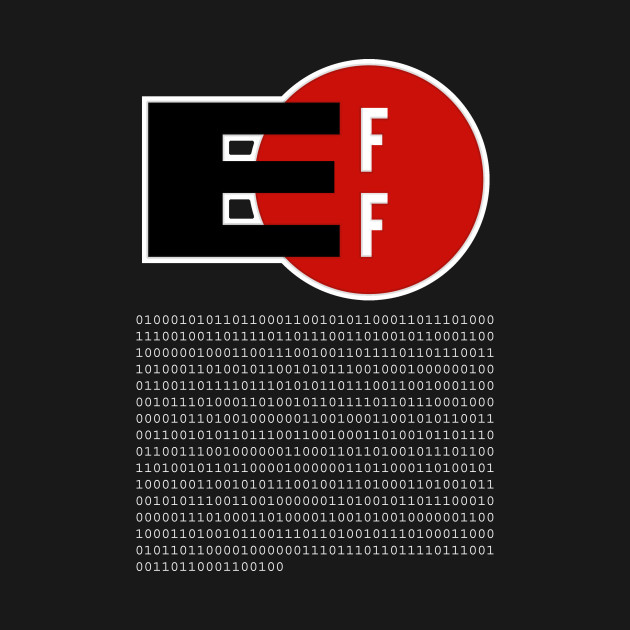

THE EFF was covered here in two separate articles yesterday [1, 2]; it had also been mentioned very briefly two days ago. We generally support the EFF, especially because of its campaigning in the domain of patent law (e.g. defending 35 U.S.C. ۤ 101 from a USPTO coup). Of course we also support its stance on copyright, net neutrality, privacy and so on even though we don't always agree on approach, the methods and the policy pursued (sometimes it feels like it's tuned by EFF sponsors). The EFF is, like any nonprofit of that scale, vulnerable to seductive corporate patrons. See what the Linux Foundation became (and no, it wasn't always this bad).
"The EFF is, like any nonprofit of that scale, vulnerable to seductive corporate patrons."The EFF in recent years has not been the same as before. It's not like it was ever perfect (nothing and nobody is perfect), but over the past 2 years it got a lot worse. This saddens me because I liked them a lot. One of our readers explained to us: "I was a member for a while and gave up on them a few years ago. I still have a t-shirt and a pile of stickers.
"If they were doing anything relevant for Digital Liberty then they were not good at communicating it even to their membership. After enough of that, I stopped being a member and eventually even stopped following even their "Deep Links" page.
"Regardless of what their priorities are or aren't these days, I'd like to see a return to them getting in the news. That might be impossible given the changes to the mainstream media, even Wired is lame now, but it is nonetheless what would help them a lot. Hopefully it would also help digital liberty. Maybe using the conference circuit more or differently would help there. That's toilsome though.
"I'm not sure what to say about their apparently complete lack of coverage of the software patent situation in Europe. Like I said above, I stopped finding them relevant and stopped keeping track of what they do or don't do so I have no idea if they have been paying attention to any other European issues either. What is visible and annoying is, last time I checked, their move away from Software Freedom and Open Source in general as they promote closed, proprietary products instead, rationalizing that with a small handful of Microsoft talking points."
"Doing another article about EFF priorities can hopefully help guide them w.r.t. wants or desires of Software Freedom proponents."We think it's about money.
Doing another article about EFF priorities can hopefully help guide them w.r.t. wants or desires of Software Freedom proponents. Even prominent privacy proponents like this one responded to us yesterday: "This already happened with the w3c DNT working group where EFF basically did nothing for about 3 years other than take a seat someone else could have had and actually done something with it."
That sounds like a familiar problem. It's what some call "controlled opposition"; our reader (above) often speaks of it in terms like "entryism".
"My comment was mostly negative," this reader explained almost with restrained sense of remorse. "Despite that I do hope they pick up some of their old priorities again. Sure they can and should do many and varied things along the way, but their overall goals should be clear as they were under Barlow's time."
To me, personally, the Electronic Frontier Foundation is still a good organisation whose reputation and direction can be salvaged. Last year the Electronic Frontier Foundation gave me some advice after I had received legal threats (obvious SLAPP) from a patent law firm. The Electronic Frontier Foundation does a good service for troubled bloggers who receive frivolous threats if not lawsuits. ⬆